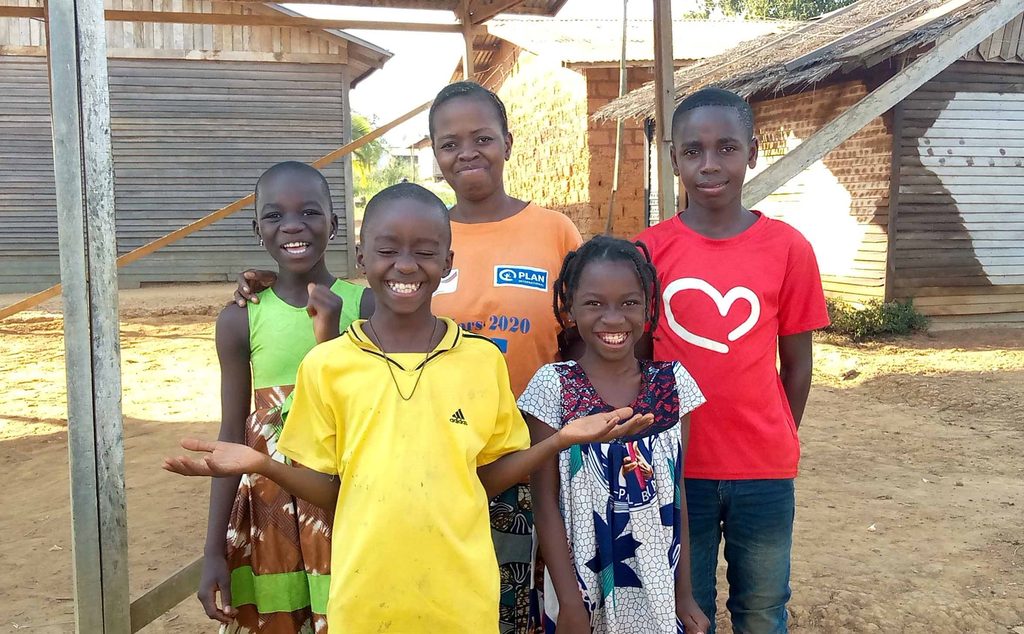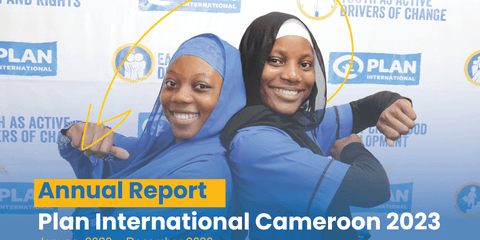After violence forced them to flee their home, mother of 4 Sahadai has faced immense challenges. Her determination and resilience have led her to become a successful business owner whose children go to school, get 3 square meals a day and their health taken care of.

“We were not eating well, didn’t have nice clothes, talk less of going to school. We don’t even know where papa is.” Says Ibrahim, 14, and Ahana, 12, Central African Republic (CAR) refugees in Cameroon, presently living in the East Region with their mother Sahadai, brother Tresor, 16, and 6-year-old sister Yaya.
“It’s painful seeing your children suffer. “When are we going back to our house? When is papa coming to get us?” they keep asking me. This has been the most difficult situation for me as a parent; being helpless in front of my children,” says 39-year-old Sahadai.
The family arrived in Cameroon in 2015 after violence forced them to flee their home. In the chaos that followed, they were separated from their father, whose whereabout is still unknown. The experience has been traumatic for the children and their mother, who now shoulders the responsibility of looking after them all alone.
Building a business and providing for her family
“During the crisis, my husband took a path that I do not know to date. I was unemployed and could barely provide a meal for my children, let along send them to school,” says Sahadai.
Needing to find a way to feed her children, Sahadai decided to set up a ‘call box’ business, using a mobile phone to sell airtime to passing customers. However, the small scale business was not generating enough profit for her family to survive.
“Today I make a significant profit that allows me to send my children to school, provide them with 3 square meals and take care of their health.”
Sahadai
Sahadai heard about a project supporting CAR refugees in Cameroon. She decided to apply for a place on the life skills and entrepreneurship training course. Upon completing the course, which also included sessions on child protection and wellbeing, Sahadai received an economic security kit which she used to scale up her business.
After a few months and with Sahadai’s strong conviction, she was able to develop her business and open a small store which is now making a good profit.
“I am no longer the vulnerable refugee woman of before. Life is not yet the best, but my children and I are happy. Today I make a significant profit that allows me to send my children to school, provide them with 3 square meals and take care of their health,” says Sahadai.
Programme Assistant, Barat Biembechou says Sahadai’s commitment to the project activities is inspiring. “Sahadai was from the first group of participants at the start of the project. Today, her business is flourishing, thanks to her determination and resilience. She is a role model to many other refugees.”
About the project
With funding from the German Federal Ministry for Economic Cooperation and Development (BMZ), this Plan International economic empowerment project aims to reduce the dependence of CAR refugees in Cameroon on aid by restructuring basic social infrastructures and ensuring their protection, education and livelihoods.
The project has so far directly impacted the lives of 5,595 girls, 5,464 boys, 4,175 women, and 3,270 men in Kadey & Boumba and Ngoko divisions. However, there is still a lot of work to be done.
“The project area still experiences periods of insecurity due to conflict, with many CAR refugees still seeking refuge and support for their children. With the availability of more funds, we will be able to ensure protection and education services for more children,” concludes Programme Manager, Sakwe Mbone.


